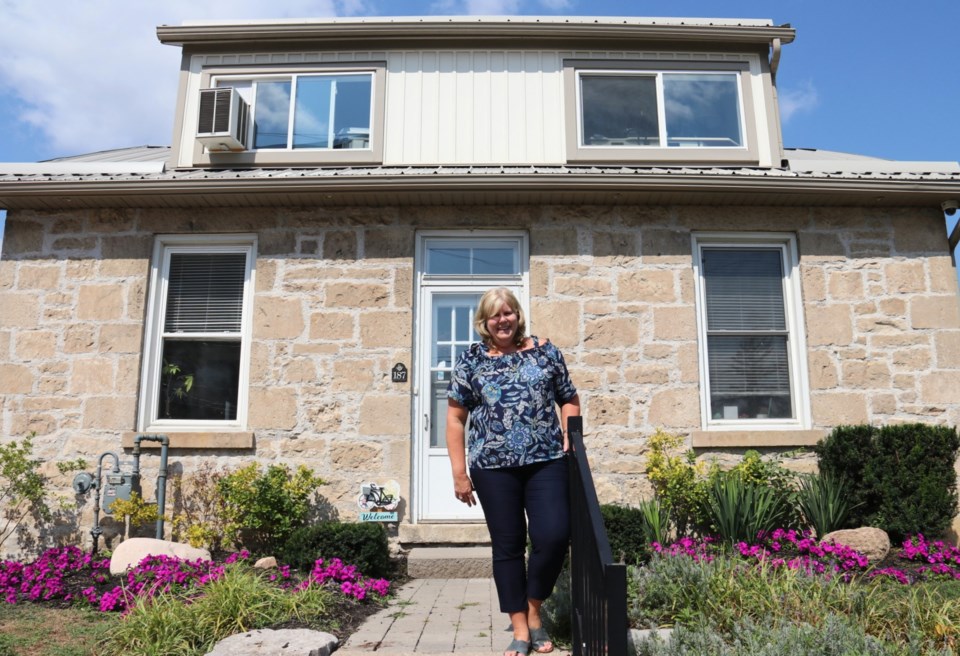When Sharelle Scullion first moved into Michael House in 2017, she didn’t really want to be there.
But newly pregnant and living with her grandparents who were “too old” to help with a newborn, there weren’t many other places for her to go.
“I didn’t want anything to do with it at first. Going through the lifestyle that I’m used to, having to live in a shelter was a huge change for me," she said.
Once she started working with the staff, though, her reluctance began to shift.
“I didn’t really think I needed help at the time, but I definitely see now looking back that the support they gave really shaped who I am today."
For the last 20 years, Michael House has been providing shelter and support to new moms in need with subsidized and supportive short-term housing.
“Becoming a new mother can be completely overwhelming,” said executive director Karen Kamphuis, and Michael House is there to help.
They have three programs: residential, supportive housing, and aftercare.
Their residential house has eight two-bedroom units, with the average stay being nine months. They offer 24/7 support for pregnant women and new moms, as well as counselling and life skills training.
“So that eventually they’re able to move out into the community,” Kamphuis said. However, she added that “too often, the young families leaving Michael House find it difficult to find secure, safe, affordable housing in the community,” which is why they also offer a supportive housing program.
Their supportive housing program is less intensive and more independent, but they have support during business hours Monday through Friday, and on-call support as needed. The building can house up to five women and their children.
The women have their own apartment with their children that includes a kitchen and living room, as well as a common living area where they can hang out and eat meals together.
There are also “intentional neighbours,” usually university students, who live in subsidized apartments across the hall to provide support.
For instance, if a mom wakes up in the middle of the night and her baby has a fever, she can call the neighbour to help her figure out what to do.
All the women who leave the programs also have the option to be involved with their aftercare program, which involves regular check-ins and support from the aftercare manager.
“Oftentimes, our aftercare manager will just touch base with them, how are things going, what are you doing? Sometimes she has to advocate, sometimes it means helping to fill out paperwork with them for housing. So she does just a whole gamut of things whenever the need arises.”
Through these programs, she said they help build a sense of community around the women, supporting them on their personal and parenting journeys.
"Living with other women in similar situations to them, they become a real support to one another as well," she said.
Michael House is not for everyone, though. There are stipulations involved. For instance, you have to participate in the programs they offer, including group counselling. They have a zero drug and alcohol policy, and visitors must be approved by staff.
All this is because they “want to make sure everybody’s safe.”
With an increase in domestic violence over the pandemic coupled with the housing crisis, she said demand for their services has remained high, and the waitlist long.
Right now for their residential program, Kamphuis said they’re looking into the new year for space to open up. In their supportive living program, the wait list is even longer, at closer to six to eight months.
Both their residential programs are continually at capacity, and there are about 60 women in the aftercare program.
As a non-profit, they are reliant on both government and community donations to operate. Right now, they’re in desperate need of baby wipes and diapers size 5 and up.
“People oftentimes don’t realize we have toddlers and older children,” so they need bigger diapers and pull-ups. “People just associate Michael House with newborns, but the newborns grow,” she said. Some of the women also already have small children when they move in.
“It really does take a village,” Kamphuis said.
Although it’s a Christian organization that uses vernacular common with pro-life activist organizations, Scullion said their views were never made known to her during her time there.
All she knows is that they are ”great people who actually care about you and want you to succeed, want to see you be the best parent you can be.’
“It’s the best place to go if you’re pregnant and have nothing or no one else.”
